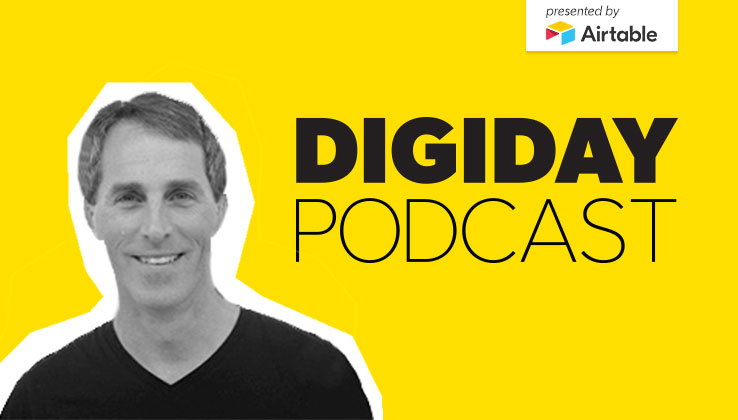Secure your place at the Digiday Media Buying Summit in Nashville, March 2-4
‘You’re constantly building the plane while flying’: Digiday’s Nick Friese on the company’s first 10 years

Subscribe: iTunes | Google Play | Stitcher | Anchor
For Digiday’s 10th anniversary, founder and CEO Nick Friese joined the Digiday Podcast to talk about the company’s first 10 years and its diverse revenue streams.
Starting with events
“You can spin up revenue quickly [with events]. I had no money, and I couldn’t hire a good journalist. I was begging people to write something for us. The idea was: Sell tickets to make money on the event. I had been in the tech and publishing business for years. I realized after the conference that people wanted to talk. I made $3,000 on the first event. I took that money and hired a salesperson. When you start off with events, you start a community. Media companies are communities.”
Quality vs. scale
“At the time [in 2008], there were a lot of big events. I wanted to do smaller, more influential events. If you’ve got influential people and they’re having a great experience and doing business together, you don’t need scale on that. You can just repeat over and over with different audiences.”
Lessons learned so far
“You just have to keep going. You’re never going to have enough resources and money. But you have to move forward. You have to constantly find new things to do, and drop things that don’t work. If it gets traction, keep building. People are forgiving. We had a terrible website, newsletter, and our events were not good. The people who came to our events were good.”
Diverse revenue portfolio
“We’ve got an advertising platform, events, award programs, a job community, licensing deals and then we started a content studio. We use our audience and media platforms to carry our clients’ messages through our websites.”
Early pivot to paid
“You’re constantly building the plane while flying. Memberships are an important engine for us. It changes the game when you get the direct relationship with the reader, and they’re paying you for content. If you do the number around subscriptions, it’s a great business. We’ve got 11 different ways in which we monetize.”
Going vertical
“We’re finding other industries that are being disrupted by technology. Two years ago, we spun Glossy out of Digiday. It’s taken two years to get to a point where we have a great audience. If you’re going to be in media, you have to be in it for the long haul. You have to diversify. We got into fintech with Tearsheet. That’s new, and it will take time to build it.”
More in Media

Media Briefing: Turning scraped content into paid assets — Amazon and Microsoft build AI marketplaces
Amazon plans an AI content marketplace to join Microsoft’s efforts and pay publishers — but it relies on AI com stop scraping for free.

Overheard at the Digiday AI Marketing Strategies event
Marketers, brands, and tech companies chat in-person at Digiday’s AI Marketing Strategies event about internal friction, how best to use AI tools, and more.

Digiday+ Research: Dow Jones, Business Insider and other publishers on AI-driven search
This report explores how publishers are navigating search as AI reshapes how people access information and how publishers monetize content.








